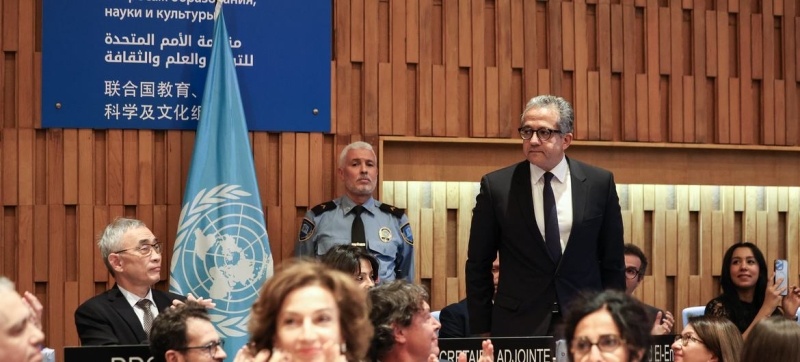
Earlier, members of the UNESCO Executive Board nominated Khaled al-Anani for the post of Director-General of the Organization. Khaled Al-Anani elected Director-General of UNESCO Culture and education
The General Conference of UNESCO elected Khaled al-Anani, representative of Egypt, as head of the Organization. He received 172 votes out of 179. The new Director General will take office on November 15, replacing Audrey Azoulay, who has held the post since 2017.
Khaled al-Anani is a professor of Egyptology at Helwan University, where he has taught for over thirty years. He has also served as Associate Dean of the Faculty of Tourism and Hospitality Management, Director of the Center for Open Learning, and Chair of the Department of Tourism Leadership. Al-Anani holds a PhD in Egyptology from the Paul Valéry University in Montpellier, France, where he has been a visiting professor on several occasions.
In 2014-2016 he headed the National Museum of Egyptian Civilization, and in 2015-2016 – the Egyptian Museum in Cairo. From 2016 to 2022, he served as Minister of Antiquities and then Minister of Tourism and Antiquities of the Arab Republic of Egypt.
In November 2024, he was appointed Special Ambassador of the World Tourism Organization for Cultural Tourism, and later became a Trustee of the African World Tourism Fund heritage.
Khaled Al-Anani will become the twelfth Director-General of UNESCO to serve a four-year term. He will be the first Director-General from an Arab country and the second from Africa to hold the post, following Amadou-Makhtar M’Bow of Senegal, who served as head of the Organization from 1974 to 1987.
The United Nations Educational, Scientific and Cultural Organization (UNESCO) promotes peace and security by enhancing international cooperation in the fields of education, science, culture and communications and information. UNESCO has 194 member states. The organization coordinates a network of protected World Heritage sites, biosphere reserves and global geoparks, creative, inclusive and sustainable cities, more than 13 thousand associated schools, university departments, teaching and research institutions, as well as 200 national commissions.
